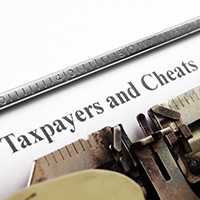Last updated: August 15 2017
Knowledge Bureau Comments on Proposed Changes to the VDP

CRA is proposing changes to its Voluntary Disclosure Program (VDP). In response, Knowledge Bureau submitted the following comments for government review in advance of the August 8, 2017, consultation deadline:
Is VDP the right program for taxpayers to fix mistakes or should they be dealt with differently? Should it apply only to those who knowingly choose to not pay their taxes or also to those who make mistakes on their returns?
The current policy of allowing taxpayers to correct both errors and omissions appears to be working well; in fact, the balance seems to be excellent in Canada. Our tax filing base is already very compliant with a complicated tax system: 92% of Canadians file and pay their taxes on time without intervention, according to the CRA’s Report on Plans and Priorities 2016. The VDP has also been working well: over two years, close to 30,000 voluntary disclosures were processed, representing unreported income in excess of $2 billion. The VDP should continue to allow for the correction of both errors or omissions in the future. It is an intelligent way for Canadians to cope with a very complex tax system.
Are we striking the right balance? CRA considered the comments made by OCAC (the Offshore Compliance Advisory Committee) to distinguish between helping those who were fully compliant and those who were seriously breaking the rules. With the proposed changes, have we achieved that balance?
Striking the right balance requires that the 92% of taxpayers who are compliant do not perceive or experience an erosion in their current rights. At very least, the government must ensure that the first test in striking the right balance is to preserve the virtues of Canada’s self-assessment system. If the changes proposed address only the issues experienced with the 8% of taxpayers who fail to comply, separate consequences for a judgment on the amount of relief provided may have merit. But even this is counter-intuitive – the value of the program is in encouraging all Canadians to come forward voluntarily – and the consequences must be transparent and clearly communicated in advance to all Canadians, regardless of the circumstances. So as the proposals stand now, there is not enough information on the nature of the delinquencies and their respective consequences to say definitively that the government is striking the right balance.
We are also concerned that the VDP will evolve in its mandate in the wrong direction: from an opportunity for taxpayers— regardless of the reason — to correct errors and omissions, to an opportunity for government to use the program for a completely different reason: to generate revenues at a modest cost. In addition to the responses to these specific questions, Knowledge Bureau also offered the general comments that follow: The ideals of any self-assessment system are fairness, equity, simplicity and compliance. In the absence of making the tax rules much less complex as part of your proposed changes, the current system appears to advance all four of these ideals.
Further, the changes proposed may not provide the government with the intended benefits over the long term, for the reasons noted in italics following the proposed changes below.
The CRA will narrow the criteria for who is eligible for penalty and interest relief: Specific detail is required to provide authoritative commentary on the value of these changes. Is this based on income source, income level, value of the amounts payable or refundable, demographics, past filing history, other specific category of request?
The pre-payment of the estimated taxes and interest owing will become a condition of qualifying for the program: This may have the effect of deterring voluntary compliance. A balance must be struck to allow people who want to comply voluntarily to pay over time, if needed, with interest.
How the interest relief available is calculated will be changed: Details on who this applies to and when must be broadly communicated in advance to make an authoritative comment on the value of the change. This procedure must be transparent and communicated to all taxpayers in advance. Relief will be cancelled if it is later discovered the application is incomplete due to a willful misrepresentation: This appears to be a reasonable consequence.
Severe cases of non-compliance will not qualify for full penalty and interest relief at all; neither will voluntary disclosure of the proceeds of crime: This may have the effect of keeping these activities underground —there is no reason to comply voluntarily.
Transfer pricing applications will not qualify; nor will corporations with gross revenues in excess of $250 million: Same comment as above — shouldn’t fairness and equity apply across the board in a self-assessment system?
We hope these comments are useful to you in your deliberations on next steps and we look forward to the results of the proposals from Finance Canada and CRA.
Evelyn Jacks is President of Knowledge Bureau, Canada’s leading educator in the tax and financial services, and author of 52 books on family tax preparation and planning.
©2017 Knowledge Bureau Inc. All Rights Reserved.





